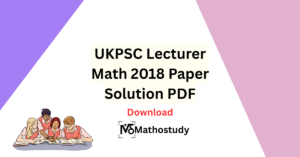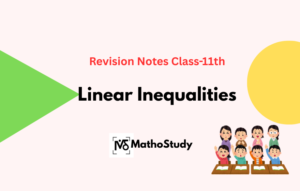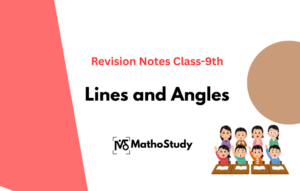The Atal Utkrisht Vidyalay Entrance Exam is one of the most important competitive examinations for school teachers in Uttarakhand. Conducted by the state education department of Uttarakhand, this exam is designed to select talented and deserving students for admission to the prestigious Atal Utkrisht Vidyalayas. The most recent entrance test was successfully held on 8 August 2025 across different centers in Uttarakhand.
In this article, we will provide a detailed analysis of the Mathematics paper, along with the answer key and step-by-step solutions to help students verify their performance. This blog will also highlight important exam trends, preparation tips, and provide the answer key for your convenience.
About the Atal Utkrisht Vidyalay Entrance Exam
The Atal Utkrisht Vidyalay scheme was launched to offer high-quality education to meritorious students of the state. Periodically this exam is conducted for thousands of teachers who appeared for this entrance exam to secure a place in these special schools. The exam usually covers subjects like:
- English communication skills
- Mathematics
Among these, the Mathematics paper divided into two parts:Section A- 30 MCQs and Section B- 30 MCQs
The exam held on 8 August 2025 followed the same pattern, testing fundamental knowledge of English communication skills and Mathematics
Answer Key – Lecturer Mathematics Paper (8 August 2025)
Here is the provisional answer key for all questions in the English and Mathematics section:
| Question No. | Correct Option |
|---|---|
| 1 | C |
| 2 | B |
| 3 | D |
| 4 | A |
| 5 | C |
| 6 | D |
| 7 | B |
| 8 | C |
| 9 | B |
| 10 | D |
| 11 | D |
| 12 | B |
| 13 | C |
| 14 | B |
| 15 | C |
| 16 | B |
| 17 | B |
| 18 | B |
| 19 | B |
| 20 | D |
| 21 | B |
| 22 | D |
| 23 | A |
| 24 | C |
| 25 | A |
| 26 | B |
| 27 | C |
| 28 | B |
| 29 | D |
| 30 | C |
| 31 | D |
| 32 | D |
| 33 | D |
| 34 | C |
| 35 | B |
| 36 | C |
| 37 | C |
| 38 | C |
| 39 | C |
| 40 | C |
| 41 | D |
| 42 | C |
| 43 | D |
| 44 | A |
| 45 | C |
| 46 | D |
| 47 | A |
| 48 | A |
| 49 | A |
| 50 | B |
| 51 | B |
| 52 | B |
| 53 | C |
| 54 | C |
| 55 | D |
| 56 | B |
| 57 | A |
| 58 | B |
| 59 | C |
| 60 | D |
| Note: This is a memory-based and unofficial answer key. The official answer key will be released by the Uttarakhand Board on their official website (ubse.uk.gov.in) soon. Teachers are advised to cross-verify once the board publishes the final version. |
Solutions to Selected Questions
Solution of Section A: English Communication Skills:
- (C) Be specific and constructive
Feedback should be clear, focused on behavior, and aimed at improvement. - (B) Practice and take deep breaths
Preparation and relaxation techniques help manage nervousness. - (D) Non-native speakers may face difficulties with pronunciation and fluency
English poses challenges for non-native speakers in accuracy and fluency. - (A) Clarity
Effective communication requires clear and unambiguous messages. - (C) It is widely used in business, education and international relations
English is a global language due to its extensive use in key sectors. - (D) Being empathetic and understanding
Good communicators listen actively and show empathy. - (B) Improved collaboration with international teams
Strong English skills facilitate global teamwork. - (C) Prejudices and biases
Psychological barriers include personal attitudes that hinder communication. - (B) Facilitating understanding between people from different cultures
English serves as a common language in multicultural contexts. - (D) Encoding
Encoding is the process of converting a message into symbols or language. - (D) Silence
Silence is not a core component of the communication process. - (B) By improving confidence in expressing ideas clearly and effectively
English proficiency boosts self-assurance in communication. - (C) Semantics
Semantics is the study of meaning in language. - (B) Sharing and exchanging ideas
Communication originally emphasized mutual exchange. - (C) Peers discussing work-related issues
Horizontal communication occurs between colleagues at the same level. - (B) It helps in conveying the message clearly and avoiding misunderstandings
- (B) Listening more than speaking
Good communicators prioritize active listening. - (B) Writing a business email
Formal communication follows structured and professional norms. - (B) Communicare
The word “communication” derives from the Latin “communicare.” - (D) Simple
Simple words enhance understanding and reduce confusion. - (B) Conveying a message
Transmitting means sending or conveying information. - (D) A passive process
Communication is dynamic, interactive, and involves feedback. - (A) In discussion within the small group
Small groups encourage open and liberal interaction. - (C) Admit that you do not know
Honesty is preferred in formal communication when unsure. - (A) Code-switching
Code-switching involves alternating between languages or styles. - (B) The sender’s message was understood as intended
Feedback confirms accurate interpretation of the message. - (C) Sending a message in a group chat
Digital communication includes online messaging among peers. - (B) Audio-visual two-way
Video conferencing allows real-time, two-way audio-visual interaction. - (D) The feelings and ideas that people may connect with them
Connotative meanings involve emotional or cultural associations. - (C) Informal communication
Peer groups typically use casual, informal communication.
Section B—Mathematics :Solutions links
The Atal Utkrisht Vidyalay Entrance Exam (Mathematics Paper) held on 8 August 2025 was moderately challenging, but teachers with strong conceptual clarity could easily attempt the majority of questions. With the help of this answer key and solutions guide, students can assess their performance and identify areas for improvement.
Stay tuned for the official answer key release from the Uttarakhand Board, and make sure to download the free PDF provided in this article for practice. Preparing well in advance with systematic revision will surely boost confidence for the next exam.




